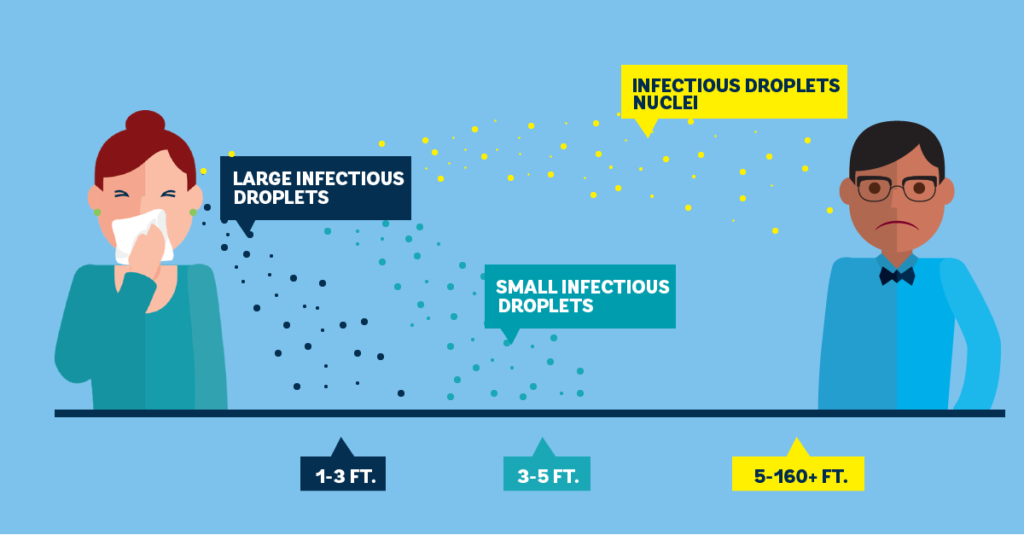People are using air purifiers more frequently as they try to make their homes safer and cleaner. Many people are questioning if air purifiers can aid in slowing the spread of airborne viruses like the COVID-19 and the persistent threat posed by the flu. The usefulness of air purifiers in preventing the spread of airborne viruses will be discussed in this article along with the essential characteristics to look for in a purifier and other steps that can be taken to improve indoor air quality. By the conclusion, you will be able to decide for yourself whether purchasing an air purifier is a sensible precaution to take in order to protect yourself and your loved ones.
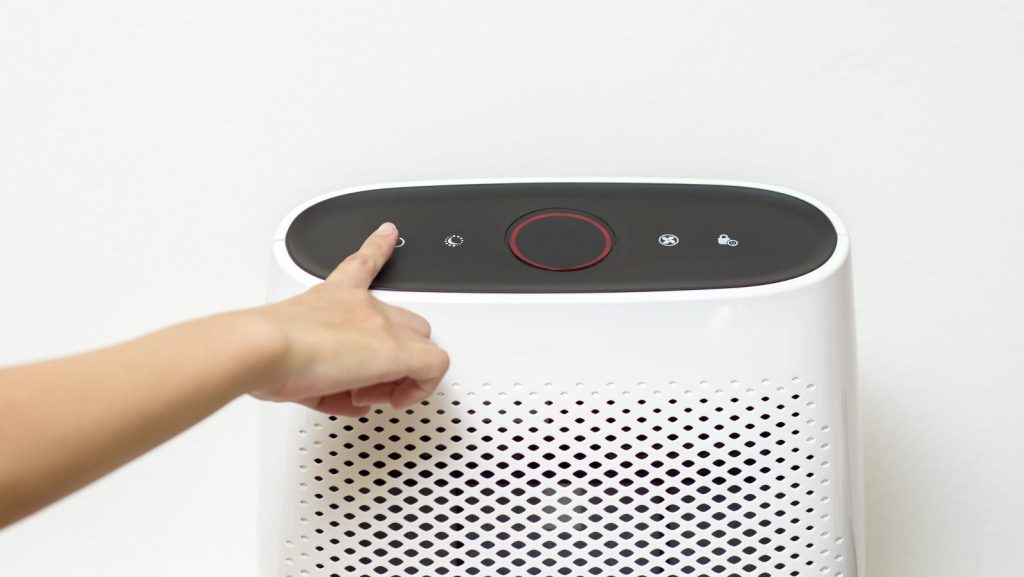
What are Air Purifiers?
The purpose of air purifiers is to enhance indoor air quality by removing pollutants and toxins. They function by clearing the air we breathe of airborne contaminants including dust, pollen, pet dander, and even viruses. As they can lessen exposure to allergens and irritants, these devices are especially helpful for people who have allergies, asthma, or other respiratory disorders.
How do Air Purifiers Work?
Different technologies are used by air purifiers to clean the air. The most popular design of air purifier uses a fan to pull polluted air in, which is then passed through a number of filters. These filters are made to catch different sized particles and purify the air before redistributing it into the space.
Different Types of Air Purifiers
There are various sorts of air purifiers on the market, and they all use various technologies to purify the air. Among the most common varieties are:
- HEPA Air Purifiers: HEPA (High-Efficiency Particulate Air) purifiers use a dense, pleated filter to capture particles as small as 0.3 microns. They are highly effective at removing allergens, dust, and other airborne particles.
- Activated Carbon Air Purifiers: These purifiers feature filters with activated carbon, which can effectively trap odors, chemicals, and volatile organic compounds (VOCs) present in the air.
- UV-C Light Air Purifiers: UV-C light purifiers use ultraviolet light to kill bacteria, viruses, and other microorganisms by damaging their DNA. They are often used in conjunction with filters to achieve optimal air purification.
- Ionizing Air Purifiers: Ionizers release negatively charged ions into the air, which attach to positively charged particles like dust and allergens, causing them to fall to the ground. These purifiers can help reduce airborne particles, but they may produce ozone as a byproduct, which can be harmful in high concentrations.
The best kind of air purifier to buy will depend on your unique requirements and the toxins you wish to get rid of from the air.
Airborne Viruses
Viruses that are airborne have the ability to infect people and spread through the air. The respiratory syncytial virus (RSV), the influenza virus, and the coronavirus that causes COVID-19 are all examples of airborne viruses.
How are Airborne Viruses Spread?
When an infected person talks, coughs, or sneezes, respiratory droplets are released into the air that can spread airborne viruses. People nearby may subsequently inhale these droplets, potentially spreading an infection. The virus can also enter the body through the mouth, nose, or eyes by coming into contact with contaminated surfaces and then touching one’s face.
Why is it Important to Reduce the Spread of Airborne Viruses?
To stop the rapid spread of infections and safeguard public health, it is essential to reduce the spread of airborne viruses. Airborne viruses not only have the potential to cause widespread illnesses, but they can also pose a particular risk to vulnerable groups, including the elderly, people with weakened immune systems, and people who already have medical issues. We can lower the likelihood of outbreaks and defend the health of people living in our communities by limiting the spread of airborne viruses.
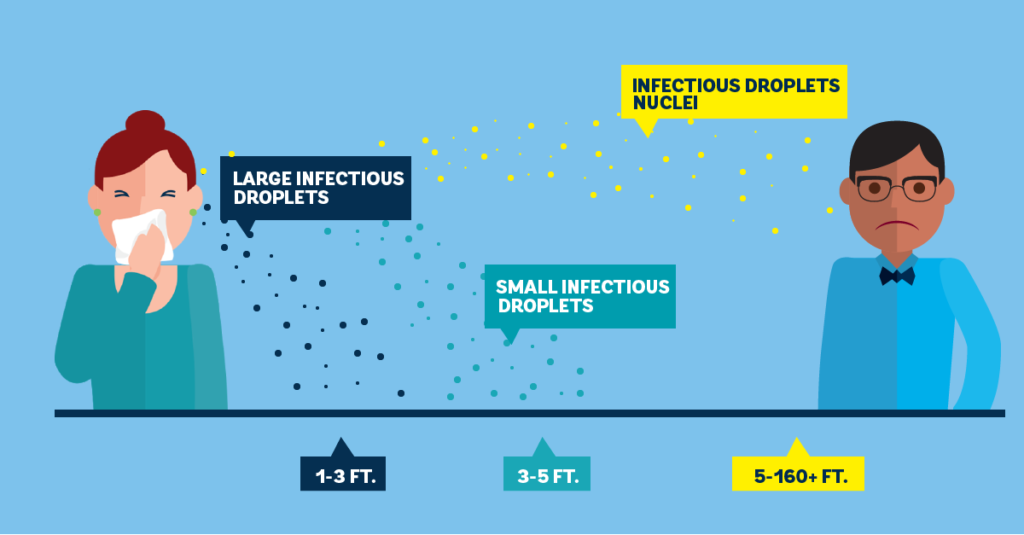
Effectiveness of Air Purifiers
Do Air Purifiers Remove Viruses from the Air?
Yes, air purifiers can, to a certain extent, assist in removing viruses from the air. Particularly HEPA filters are able to capture particles as small as viruses, such as some flu virus strains and the COVID-19 coronavirus. It is important to remember that no air filter can entirely reduce the danger of infection. Air purifiers should not be seen as the only preventive strategy, but rather as an extra safeguard.
Can Air Purifiers Help Reduce the Spread of Airborne Viruses?
By catching and eliminating viral particles from the air, air purifiers can help stop the spread of airborne viruses. The possibility of breathing viral particles and contracting an infection can be decreased by lowering the quantity of viral particles in the air. To effectively reduce the spread of viruses, air purifiers must be used in conjunction with other preventive measures including mask use, excellent hand hygiene, and maintaining social distance.
Factors to Consider When Choosing an Air Purifier
In order to choose an air purifier that can effectively stop the transmission of airborne viruses, it is essential to take into account a number of variables.
Filter Efficiency
For the air purifier to effectively capture and eliminate airborne viruses, its filters must be effective. To effectively capture particles the size of viruses, look for purifiers with HEPA filters. For non-HEPA filters, take into account the MERV (Minimum Efficiency Reporting Value) rating as well, as higher ratings denote superior filtration capability.
Air Change Rate
The number of times the air purifier can filter the full volume of air in a specific space in a given hour is referred to as the air change rate. The concentration of virus particles can be reduced more quickly with a faster air change rate. To effectively purify the air, select an air purifier with a sufficient air change rate based on the size of the space.
Room Size Considerations
Different air purifiers are made to operate best in particular sized rooms. To ensure appropriate air circulation and purification, the size of the room in which the air purifier will be utilized must be taken into consideration. Choose a purifier that has the right coverage for the area you intend to use it in.
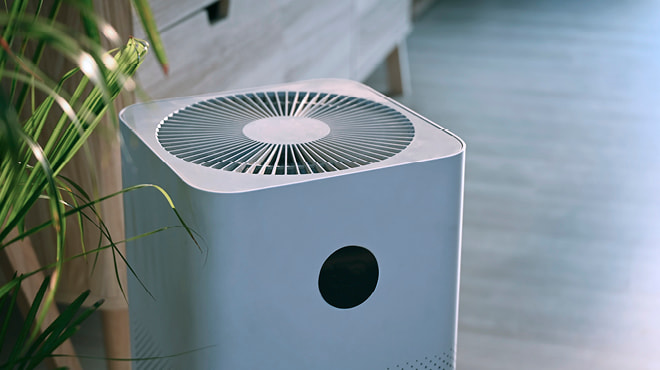
Are HEPA Filters Effective against Airborne Viruses?
What is a HEPA Filter?
An air filter that satisfies the HEPA standard and can capture at least 99.97% of particles as small as 0.3 microns is known as a HEPA filter. Viruses, germs, allergies, and other minute particles can all be effectively removed from the air by using these filters.
Can HEPA Filters Capture Airborne Viruses?
Yes, airborne viruses like the flu virus and the coronavirus that causes COVID-19 can be caught by HEPA filters. A virus particle’s small size makes it possible for a HEPA filter’s dense fibers to successfully trap it. But it’s crucial to remember that in order for the virus to be captured, it must make contact with the filter. HEPA filters effectively remove viruses from the air without harming them.
Limitations of HEPA Filters
Although HEPA filters are quite good at catching airborne viruses, it’s important to be aware of their limitations. They may not be as successful at eliminating viruses that have been deposited on surfaces since they focus largely on airborne particles. Additionally, the effectiveness of HEPA filters may differ based on elements including filter quality, air change frequency, and the air purifier’s overall efficiency.
Additional Technologies to Consider
Other technologies that are frequently added into air purifiers, other from HEPA filters, can improve the efficiency of these devices in limiting the spread of airborne viruses.
UV-C Light
UV-C light, which emits short-wavelength ultraviolet light, is a component of some air cleaners. Viruses, bacteria, and other microbes can be killed or rendered inactive by UV-C light, which has antibacterial qualities. UV-C light can add an additional layer of defense against airborne viruses when paired with HEPA filtration.
Activated Carbon Filters
Filters made of activated carbon are very effective at removing pollutants, smells, and volatile organic compounds (VOCs) from the air. Despite the fact that they might not directly capture viruses, they can nonetheless contribute to lowering the overall particle load in the air, enhancing air quality generally, and perhaps even reducing the spread of airborne viruses.
Ionizers
Negative ions, which are released into the air by ionizers, attach to positively charged particles including dust, allergies, and specific viruses, causing them to fall to the ground. Although some ionizers may produce ozone as a byproduct, which can be dangerous in high amounts, ionizers can aid in lowering the concentration of airborne particulates. For safer use, look for ozone-free ionizers in air purifiers.
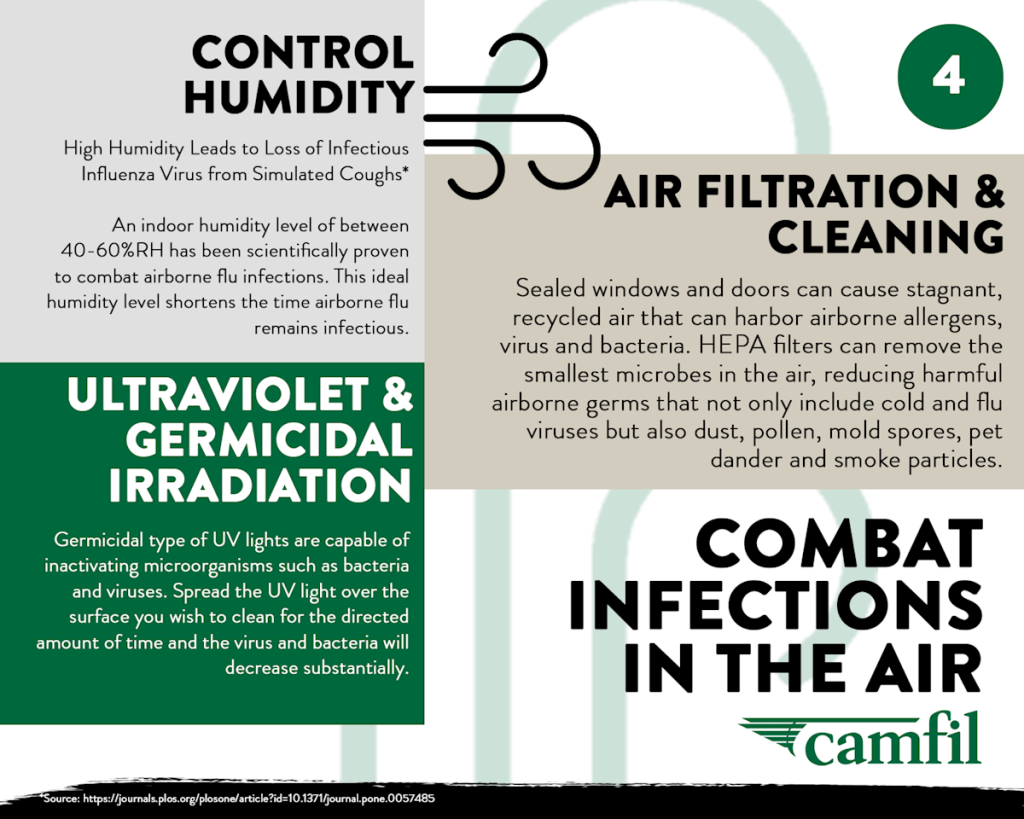
Placement and Maintenance
Where to Place an Air Purifier
The right placement is essential for an air purifier to operate at its best. The purifier should be put in the room where you spend the most time. Additionally, to ensure effective air movement, place the purifier away from impediments like furniture or walls in an area with good ventilation.
Proper Maintenance for Maximum Effectiveness
An air purifier must need regular maintenance to work at its best. According to the manufacturer’s instructions, this involves cleaning or replacing filters, as clogged filters can obstruct airflow and lower the effectiveness of the purifier. In order to avoid the accumulation of dust and other contaminants, it is also crucial to routinely clean the purifier’s exterior and other components.
Other Measures to Reduce the Spread of Airborne Viruses
Air purifiers should be used as part of a multi-layered strategy since they can significantly reduce the spread of airborne infections. Here are some extra actions to think about:
Wearing Masks
Using masks that properly cover the mouth and nose can greatly minimize the spread of airborne viruses. Masks function as a barrier to stop respiratory droplets from entering the air, safeguarding both the wearer and those nearby.
Regular Handwashing
In order to lower the risk of infection, frequent handwashing with soap and water for at least 20 seconds is essential. Maintaining good hand hygiene can help eradicate viruses that may be present from the hands and stop them from spreading to the face or other surfaces.
Maintaining Social Distancing
In crowded or poorly ventilated areas, keeping a safe distance from others can help reduce the spread of airborne diseases. Keeping a minimum of six feet between you and people outside of your home lowers your chance of breathing in respiratory droplets with viruses.
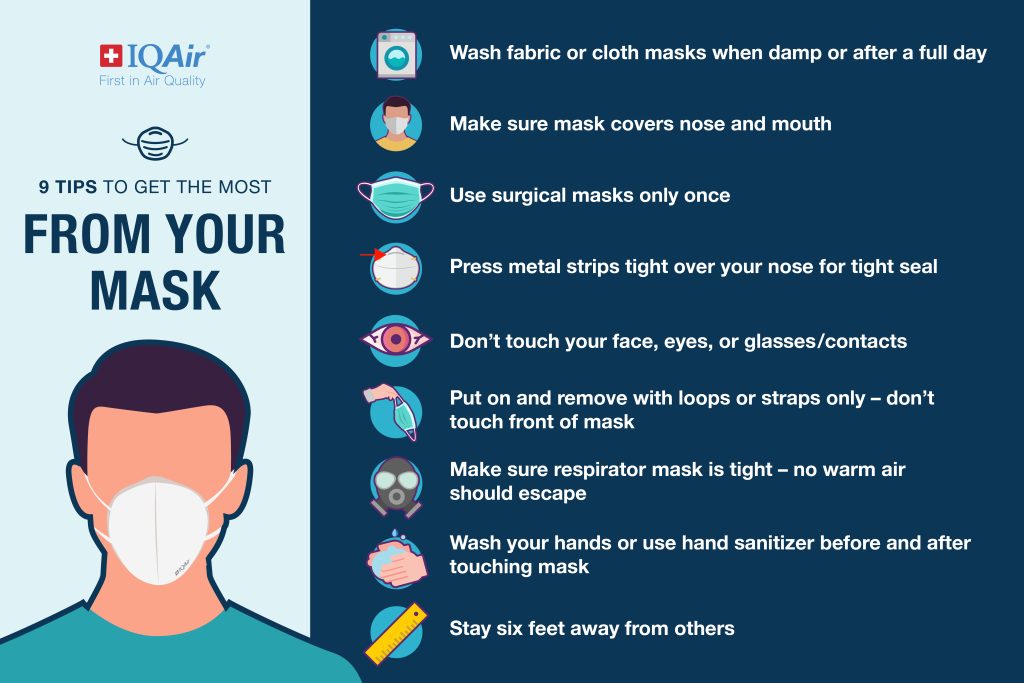
Considerations for COVID-19
How Does COVID-19 Spread?
When an infected person talks, coughs, or sneezes, respiratory droplets are released that are the main means of COVID-19 transmission. The virus can potentially enter the body by touching contaminated surfaces and then touching the face.
Can Air Purifiers Help Reduce the Transmission of COVID-19?
By catching and eliminating viral particles from the air, air purifiers can help stop the spread of COVID-19, but they should be used in concert with other preventive measures. To effectively lower the danger of COVID-19 transmission, it is crucial to adhere to recommendations from credible health authorities, such as donning masks, using excellent hand hygiene, and keeping a social distance.
Conclusion
In limiting the spread of airborne viruses like the flu and COVID-19, air purifiers can be very helpful. Air purifiers can reduce the chance of inhaling virus particles and contracting an infection by successfully catching and eliminating these particles from the air. Air purifiers should, however, only be used as a part of a multi-layered virus prevention strategy that also includes using masks, washing your hands frequently, and keeping a social distance. We may protect ourselves and those around us from airborne infections by combining these precautions to create a safer and healthier home environment.
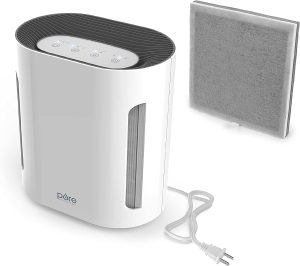
More recommendation: Bissell air400 Professional Air Purifier

